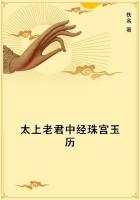'To tell the truth' (she blushed) 'I am ashamed, for my daughter's sake and the children's, to go there in tattered clothes, and I haven't anything else. Besides, I am just lazy.'
'And do you pray at home?'
'I do. But what sort of prayer is it? Only mechanical. I know it should not be like that, but I lack real religious feeling.
The only thing is that I know how bad I am . . .'
'Yes, yes, that's right!' said Kasatsky, as if approvingly.
'I'm coming! I'm coming!' she replied to a call from her son-in-law, and tidying her scanty plait she left the room.
But this time it was long before she returned. When she came back, Kasatsky was sitting in the same position, his elbows resting on his knees and his head bowed. But his wallet was strapped on his back.
When she came in, carrying a small tin lamp without a shade, he raised his fine weary eyes and sighed very deeply.
'I did not tell them who you are,' she began timidly. 'I only said that you are a pilgrim, a nobleman, and that I used to know you. Come into the dining-room for tea.'
'No . . .'
'Well then, I'll bring some to you here.'
'No, I don't want anything. God bless you, Pashenka! I am going now. If you pity me, don't tell anyone that you have seen me.
For the love of God don't tell anyone. Thank you. I would bow to your feet but I know it would make you feel awkward. Thank you, and forgive me for Christ's sake!'
'Give me your blessing.'
'God bless you! Forgive me for Christ's sake!'
He rose, but she would not let him go until she had given him bread and butter and rusks. He took it all and went away.
It was dark, and before he had passed the second house he was lost to sight. She only knew he was there because the dog at the priest's house was barking.
'So that is what my dream meant! Pashenka is what I ought to have been but failed to be. I lived for men on the pretext of living for God, while she lived for God imagining that she lives for men. Yes, one good deed--a cup of water given without thought of reward--is worth more than any benefit I imagined Iwas bestowing on people. But after all was there not some share of sincere desire to serve God?' he asked himself, and the answer was: 'Yes, there was, but it was all soiled and overgrown by desire for human praise. Yes, there is no God for the man who lives, as I did, for human praise. I will now seek Him!'
And he walked from village to village as he had done on his way to Pashenka, meeting and parting from other pilgrims, men and women, and asking for bread and a night's rest in Christ's name.
Occasionally some angry housewife scolded him, or a drunken peasant reviled him, but for the most part he was given food and drink and even something to take with him. His noble bearing disposed some people in his favour, while others on the contrary seemed pleased at the sight of a gentleman who had come to beggary.
But his gentleness prevailed with everyone.
Often, finding a copy of the Gospels in a hut he would read it aloud, and when they heard him the people were always touched and surprised, as at something new yet familiar.
When he succeeded in helping people, either by advice, or by his knowledge of reading and writing, or by settling some quarrel, he did not wait to see their gratitude but went away directly afterwards. And little by little God began to reveal Himself within him.
Once he was walking along with two old women and a soldier. They were stopped by a party consisting of a lady and gentleman in a gig and another lady and gentleman on horseback. The husband was on horseback with his daughter, while in the gig his wife was driving with a Frenchman, evidently a traveller.
The party stopped to let the Frenchman see the pilgrims who, in accord with a popular Russian superstition, tramped about from place to place instead of working.
They spoke French, thinking that the others would not understand them.
'Demandez-leur,' said the Frenchman, 's'ils sont bien sur de ce que leur pelerinage est agreable a Dieu.'
The question was asked, and one old woman replied:
'As God takes it. Our feet have reached the holy places, but our hearts may not have done so.'
They asked the soldier. He said that he was alone in the world and had nowhere else to go.
They asked Kasatsky who he was.
'A servant of God.'
'Qu'est-ce qu'il dit? Il ne repond pas.'
'Il dit qu'il est un serviteur de Dieu. Cela doit etre un fils de preetre. Il a de la race. Avez-vous de la petite monnaie?'
The Frenchman found some small change and gave twenty kopeks to each of the pilgrims.
'Mais dites-leur que ce n'est pas pour les cierges que je leur donne, mais pour qu'ils se regalent de the. Chay, chay pour vous, mon vieux!' he said with a smile. And he patted Kasatsky on the shoulder with his gloved hand.
'May Christ bless you,' replied Kasatsky without replacing his cap and bowing his bald head.
He rejoiced particularly at this meeting, because he had disregarded the opinion of men and had done the ******st, easiest thing--humbly accepted twenty kopeks and given them to his comrade, a blind beggar. The less importance he attached to the opinion of men the more did he feel the presence of God within him.
For eight months Kasatsky tramped on in this manner, and in the ninth month he was arrested for not having a passport. This happened at a night-refuge in a provincial town where he had passed the night with some pilgrims. He was taken to the police-station, and when asked who he was and where was his passport, he replied that he had no passport and that he was a servant of God. He was classed as a tramp, sentenced, and sent to live in Siberia.
In Siberia he has settled down as the hired man of a well-to-do peasant, in which capacity he works in the kitchen-garden, teaches children, and attends to the sick.













